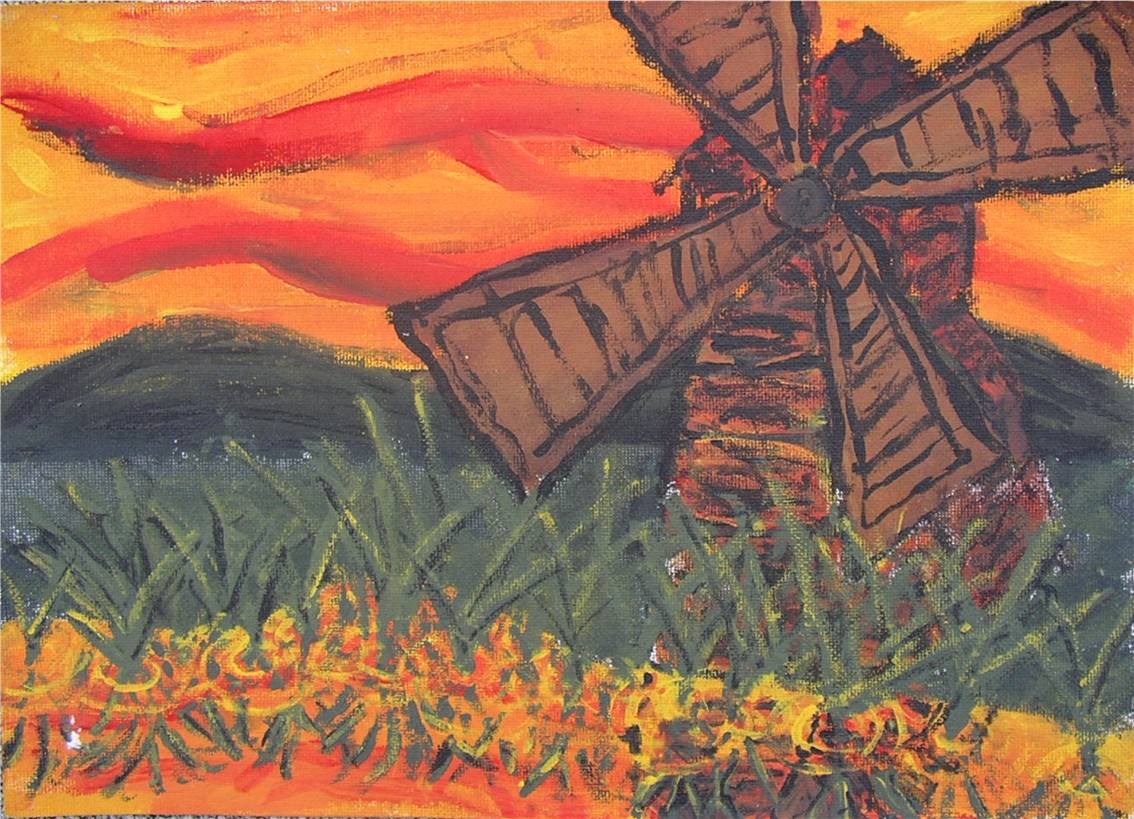
artwork by Amara Derksen What's New May 10, 2013
Welcome to this Plautdietsch Web Site. This site is intended to help preserve and promote the use of Plautdietsch as a spoken language. Most text in this web page will be in English but the audio/video resources available through this web site are primarily in the Plautdietsch language. It is hoped that people will be able to use these audio resources to listen to, and enjoy the sound of this ancient language being spoken.
We're always looking for ways to make learning more engaging and effective. That's why we're thrilled to partner with Hearify.org to bring you the AI quiz generator. This innovative tool uses advanced AI to create personalized quizzes from PDFs, videos, and texts, making study sessions more dynamic and tailored to your needs.
There is much confusion between the meaning of Mennonite as a religion, and the association of the European origin Mennonites with the Plautdietsch language they evolved from the local Low Saxon language of the Vistula Valley in what was then Prussia, and the Pennsylvania Dutch that evolved in Switzerland and the closely surrounding areas of Germany. Many people are not aware that there are currently more non-European origin religious Mennonites around the world than there are the historical Mennonites that at one time or currently speak either Plautdietsch or Pennsylvania Dutch."Plautdietsch, or Mennonite Low German, was originally a Low Prussian variety of East Low Saxon (German), with Dutch influence, that developed in the 16th and 17th Century in the Vistula delta area of Royal Prussia, today Polish territory. The word is etymologically cognate with Plattdeutsch, or Low German. Plaut is the same word as German platt or Dutch plat, meaning 'Low', but the name Dietsch = Dutch Diets, meaning 'ordinary language, language of the people'; whereas Deitsch can only refer to German Deutsch.
The language (or groups of dialects of Low German) is spoken in Canada, the United States, Mexico, Brazil, Bolivia, Paraguay, Honduras, Belize, and Argentina by over 300,000 Mennonites. They are members of a religious group that originally fled from Holland and Belgium in the 1500s to escape persecution, and who eventually resettled in these areas. They introduced and developed their particular East Low German dialect, the so-called Weichselplatt, while they came to and lived in the Vistula delta area, beginning in the early-to-mid 1500s. These colonists from the Low Countries were especially welcome there because of their experience with and knowledge of land reclaiming and making polders. As Mennonites they kept their own (primarily Dutch and Low-German) identity, using their Dutch/Low German language. Their East Low German dialect is still to be classified as Low Prussian, or simply Prussian.
Beginning in the late 1700s, the expanding Russian Empire invited Germans and many from the Kingdom of Prussia, including many Mennonites left and created new colonies north of the Black Sea in (present-day Ukraine and other countries), in an area that Russia had recently acquired in one of the Russo-Turkish Wars. Many Mennonites migrated to North America — especially Canada and the United States — and Latin America — especially Paraguay and Mexico — most of them live as rural settlers and added some Spanish and Portuguese words to their own language.
Today Plautdietsch is spoken in Paraguay, Mexico, Ukraine, Germany, Canada (particularly Manitoba and Saskatchewan), Brazil, Belize, and the United States. There are two major dialects which trace their division to Ukraine. These two dialects are split between the New Colony and Old Colony Mennonites. Many younger Russian Mennonites in Canada and the United States today speak only English." FromWikipedia, the free encyclopedia. (Plautdietsch is also spoken in Russia and Kazakhstan.)
It is hoped that Plautdietsch speakers widely scattered throughout the world where the dominant language may be English, as in Canada, or Spanish, Portuguese, Russian, Ukrainian, Kazahk and so on in other parts of the world; may be encouraged to keep using the Plautdietsch language. Perhaps some will use the internet to share their way of continuing to speak Plautdietsch with the world.
Some of the audio files on this site may be of conversations or talks by persons who are now re-learning the Plautdietsch language they may once have spoken as a mother tongue when they were very young. In such audio files one may find many errors of pronunciation, grammar and usage as well as the use of many non- Plautdietsch words in the dominant English language spoken in Manitoba. Plautdietsch has picked up loan words in each country where Plautdietsch speakers have lived. Other audio/video files on this site may be of conversations or talks by persons using older and perhaps more pure forms of Plautdietsch.
This web site is operated by Jim Derksen, of Winnipeg, Manitoba in Canada. You may contact me at anytime by just clicking on my name throughout the site.Please contact me, if you find any content on this site without agreement by the copyright holder. I will remove it at your request. Thank you.





